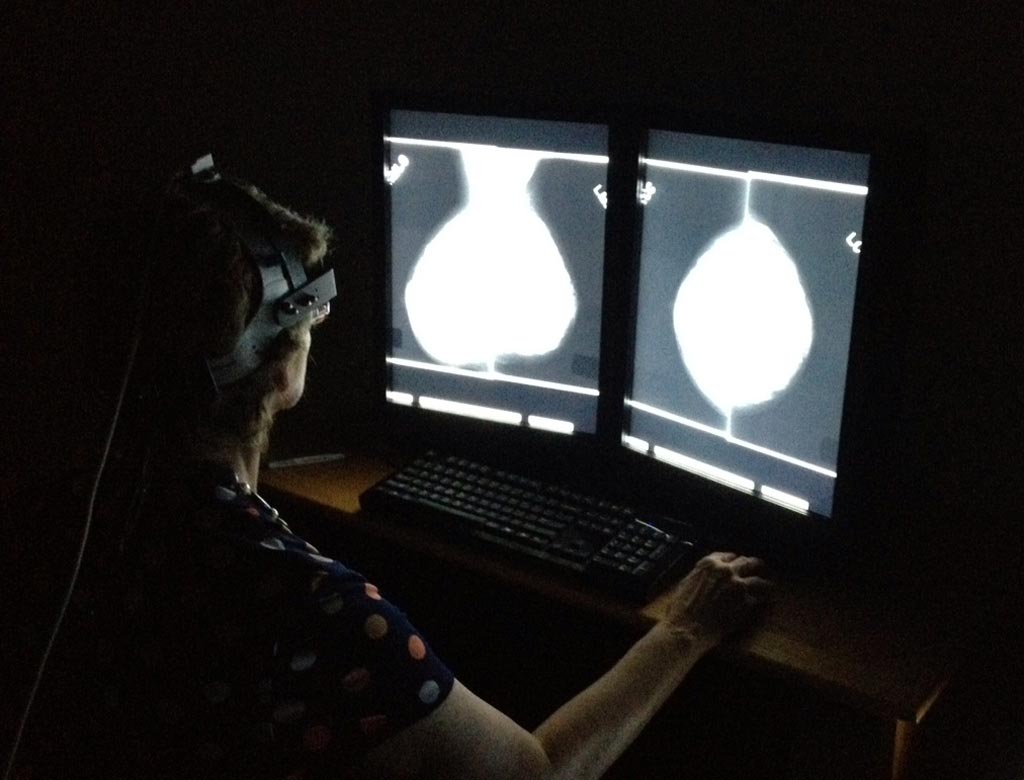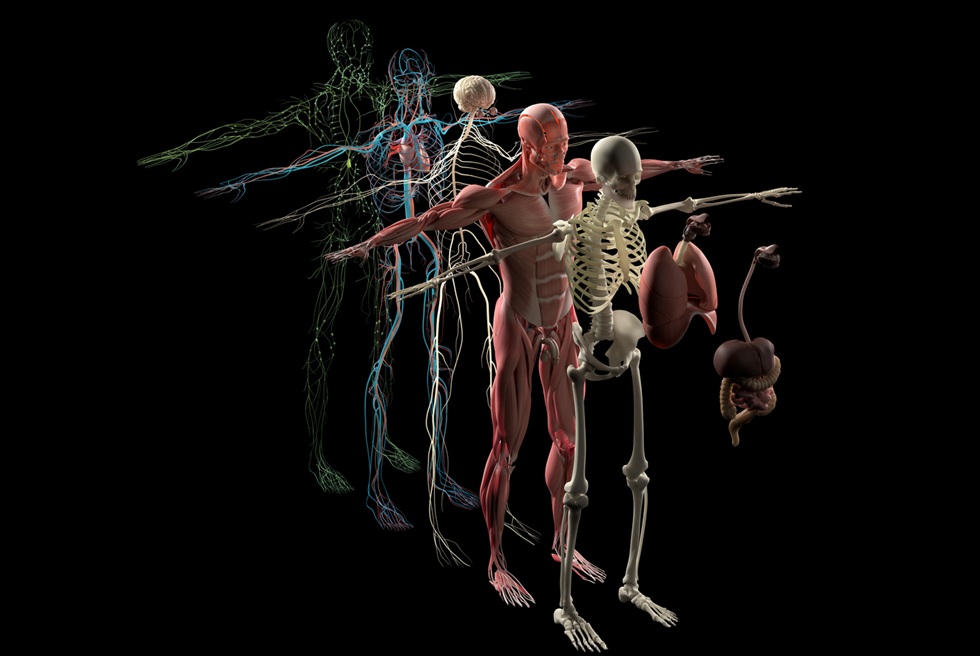AI-Based Tool Improves Diagnosis of Breast Cancer Tumors and Ability to Predict Risk of Recurrence
|
By MedImaging International staff writers Posted on 01 Oct 2021 |

Researchers have developed an artificial intelligence (AI)-based tool that improves the diagnosis of breast cancer tumors and the ability to predict the risk of recurrence.
The greater diagnostic precision enabled by the AI-based tool developed by researchers at the Karolinska Institutet (Stockholm, Sweden) can lead to more personalized treatment for the large group of breast cancer patients with intermediate risk tumors.
Every year, around two million women globally develop breast cancer. In the diagnostic procedure, tissue samples of the tumor are analyzed and graded by a pathologist and categorized by risk as low (grade 1), medium (grade 2) or high (grade 3). This helps the doctor determine the most suitable treatment for the patient. Hospitals have recently started to make limited use of molecular diagnostics to improve the precision of breast cancer risk assessment, but these methods are often costly and time-consuming.
In a study based on an extensive microscopic image bank of 2,800 tumors, researchers trained a new AI-based method for tissue analysis to recognize characteristics of high-resolution microscopic images from patients classified with grade 1 and grade 3 tumors. In an evaluation of the AI model, the researchers found that their AI-based method can further divide the patients with grade 2 tumors into two sub-groups, one high-risk and one low-risk that are clearly distinguishable in terms of the recurrence risk. The method is not yet ready for clinical application, but a regulatory approved product is under development. The researchers will now be further evaluating the method with the aim to have a product out on the market by 2022.
“Roughly half of breast cancer patients have a grade 2 tumor, which unfortunately gives no clear guidance on how the patient is to be treated,” said the study’s first author Yinxi Wang, doctoral student at the Department of Medical Epidemiology and Biostatistics, Karolinska Institutet. “Consequently, some of the patients are over-treated with chemotherapy while others risk being under-treated. It’s this problem that we’ve tried to resolve.”
“One big advantage of the method is that it’s cost-effective and fast, since it’s based on microscope images of dyed tissue samples, which is already part of hospital procedure,” said co-last author Johan Hartman, professor of pathology at the Department of Oncology-Pathology, Karolinska Institutet, and pathologist at the Karolinska University Hospital. “It enables us to offer this type of diagnosis to more people and improves our ability to give the right treatment to any one patient.”
“It’s fantastic that deep learning can help us develop models that don’t just reproduce what specialist doctors do today, but also enable us to extract information beyond the scope of the human eye,” added co-last author Mattias Rantalainen, associate professor and research group leader at the Department of Medical Epidemiology and Biostatistics, Karolinska Institutet.
Related Links:
Karolinska Institutet
Latest AI News
Channels
Radiography
view channel
Routine Mammograms Could Predict Future Cardiovascular Disease in Women
Mammograms are widely used to screen for breast cancer, but they may also contain overlooked clues about cardiovascular health. Calcium deposits in the arteries of the breast signal stiffening blood vessels,... Read more
AI Detects Early Signs of Aging from Chest X-Rays
Chronological age does not always reflect how fast the body is truly aging, and current biological age tests often rely on DNA-based markers that may miss early organ-level decline. Detecting subtle, age-related... Read moreMRI
view channel
MRI Scans Reveal Signature Patterns of Brain Activity to Predict Recovery from TBI
Recovery after traumatic brain injury (TBI) varies widely, with some patients regaining full function while others are left with lasting disabilities. Prognosis is especially difficult to assess in patients... Read more
Novel Imaging Approach to Improve Treatment for Spinal Cord Injuries
Vascular dysfunction in the spinal cord contributes to multiple neurological conditions, including traumatic injuries and degenerative cervical myelopathy, where reduced blood flow can lead to progressive... Read more
AI-Assisted Model Enhances MRI Heart Scans
A cardiac MRI can reveal critical information about the heart’s function and any abnormalities, but traditional scans take 30 to 90 minutes and often suffer from poor image quality due to patient movement.... Read more
AI Model Outperforms Doctors at Identifying Patients Most At-Risk of Cardiac Arrest
Hypertrophic cardiomyopathy is one of the most common inherited heart conditions and a leading cause of sudden cardiac death in young individuals and athletes. While many patients live normal lives, some... Read moreUltrasound
view channel
Wearable Ultrasound Imaging System to Enable Real-Time Disease Monitoring
Chronic conditions such as hypertension and heart failure require close monitoring, yet today’s ultrasound imaging is largely confined to hospitals and short, episodic scans. This reactive model limits... Read more
Ultrasound Technique Visualizes Deep Blood Vessels in 3D Without Contrast Agents
Producing clear 3D images of deep blood vessels has long been difficult without relying on contrast agents, CT scans, or MRI. Standard ultrasound typically provides only 2D cross-sections, limiting clinicians’... Read moreNuclear Medicine
view channel
Radiopharmaceutical Molecule Marker to Improve Choice of Bladder Cancer Therapies
Targeted cancer therapies only work when tumor cells express the specific molecular structures they are designed to attack. In urothelial carcinoma, a common form of bladder cancer, the cell surface protein... Read more
Cancer “Flashlight” Shows Who Can Benefit from Targeted Treatments
Targeted cancer therapies can be highly effective, but only when a patient’s tumor expresses the specific protein the treatment is designed to attack. Determining this usually requires biopsies or advanced... Read moreGeneral/Advanced Imaging
view channel
New 3D Imaging System Addresses MRI, CT and Ultrasound Limitations
Medical imaging is central to diagnosing and managing injuries, cancer, infections, and chronic diseases, yet existing tools each come with trade-offs. Ultrasound, X-ray, CT, and MRI can be costly, time-consuming,... Read more
AI-Based Tool Predicts Future Cardiovascular Events in Angina Patients
Stable coronary artery disease is a common cause of chest pain, yet accurately identifying patients at the highest risk of future heart attacks or death remains difficult. Standard coronary CT scans show... Read moreImaging IT
view channel
New Google Cloud Medical Imaging Suite Makes Imaging Healthcare Data More Accessible
Medical imaging is a critical tool used to diagnose patients, and there are billions of medical images scanned globally each year. Imaging data accounts for about 90% of all healthcare data1 and, until... Read more
Global AI in Medical Diagnostics Market to Be Driven by Demand for Image Recognition in Radiology
The global artificial intelligence (AI) in medical diagnostics market is expanding with early disease detection being one of its key applications and image recognition becoming a compelling consumer proposition... Read moreIndustry News
view channel
GE HealthCare and NVIDIA Collaboration to Reimagine Diagnostic Imaging
GE HealthCare (Chicago, IL, USA) has entered into a collaboration with NVIDIA (Santa Clara, CA, USA), expanding the existing relationship between the two companies to focus on pioneering innovation in... Read more
Patient-Specific 3D-Printed Phantoms Transform CT Imaging
New research has highlighted how anatomically precise, patient-specific 3D-printed phantoms are proving to be scalable, cost-effective, and efficient tools in the development of new CT scan algorithms... Read more
Siemens and Sectra Collaborate on Enhancing Radiology Workflows
Siemens Healthineers (Forchheim, Germany) and Sectra (Linköping, Sweden) have entered into a collaboration aimed at enhancing radiologists' diagnostic capabilities and, in turn, improving patient care... Read more







 Guided Devices.jpg)












